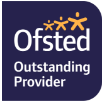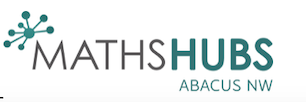
Learners with Autism - ASD pathway
Learners with autism can display varying degrees of the Triad of impairments which not only cause barriers to learning but also difficulties with many aspects of ‘normal’ daily life. Social and communication impairment along with restricted, repetitive patterns of behaviour provide challenges to the individuals which have to be carefully considered in every aspect of their daily routine at Elm Tree.
Autism Spectrum Disorders have a number of associated features/conditions or difficulties that exist in conjunction with the triad of impairments. These may be specific to one learner or a small group and need careful consideration to manage, work with and thrive.

We have recently subscribed to the Cornerstones curriculum development package whereby teachers can build and develop their own curriculum, incorporating themes and topics that are aligned with the needs of the pupils in their classes. We are very excited to use this flexibility to encourage progression for all pupils and devolp a bespoke learning package for all specialist areas.
Cornerstones curriculum home page - https://cornerstoneseducation.co.uk/
Our ASD provision delivers…
- Individualised sensory, gross/fine motor skill programmes alongside learning, environmental and social considerations for all pupils.
- Consistent and familiar staff for development of routine and trust with all learners.
- Peer-to-Peer and group activities - low stimulus and tailored to the needs of individuals.
- Room dividers/ zone identification - Structure of class specific and familiar.
- Minimal colour and stimulation of classroom decor, lighting and visual stimulus considerations.
- Consistent clear structured- routines- now/next and daily visual timetables rather than non-verbal.
- Work systems and concrete routines, work on social cues and rules Colour coding/ zoning of areas.
- Consideration to classroom environment Tasks/Steps.
- Digestible instructions, scripted conversations ensuring familiarity and low anxiety.
- Effective use of nonverbal communication - Cue cards, colour cards, sounds and music and Makaton.
- Stimulatory needs- all senses clear consistent boundaries rules/ expectations.
- Consistent clear routines to develop a reduction in anxiety.
- Careful management of change with adequate processing time for trips and experiences.
- Consistent responses to over/under stimulated states by all staff.
- Opportunities for regulatory/sensory breaks activity throughout the daily timetable.
- Equipment specifically designed for individuals to use for physical and mental regulation/stimulation.
- O/T support and input for each individual and development of specific care packages.
|
Timetable |
|||||
|
|
Monday |
Tuesday |
Wednesday |
Thursday |
Friday |
|
08.45-09.15 |
Breakfast - Sensory and Physical Regulation activities |
||||
|
09.15-10.00 |
Maths |
P.E |
Maths |
Maths |
Assembly Sensory/OT skills |
|
Regulation activities |
Regulation activities |
Regulation activities |
|||
|
10.00-10.15 |
Phonics |
Phonics |
Phonics |
Phonics |
|
|
10.15-10.30 |
English |
PSHE |
English |
English |
English |
|
10.30-10.45 |
Handwriting |
Handwriting |
Handwriting |
Handwriting |
|
|
10.45-11.00 |
Snack |
||||
|
11.00-11.15 |
Break |
||||
|
11.15-11.30 |
Reading |
Phonics (Phonics Play) |
Reading |
Reading |
Reading |
|
11.30-12.00 |
Cooking |
ICT |
Topic/Project based learning (ICT suite available) |
Enrichment |
Maths
|
|
12.00-12.30 |
Maths |
Topic/Project based learning |
|||
|
12.30-13.00 |
Options |
Options |
|||
|
13.00-13.15 |
Family Service Lunch |
Family Service Lunch |
|||
|
13.15-13.45 |
Regulation/Yoga/Meditation |
Regulation/Yoga/Meditation |
Regulation/Yoga/Meditation |
Regulation/Yoga/Meditation |
|
|
13.45-14.45
|
Cooking |
Science |
Topic/Project based learning |
Emotion works circle time |
|
|
Team work celebration (thrive) |
|||||
|
14.45-14.55 |
Regulation activities/Options |
||||

.png)

.jpg)

.png)

.jpg)

.png)